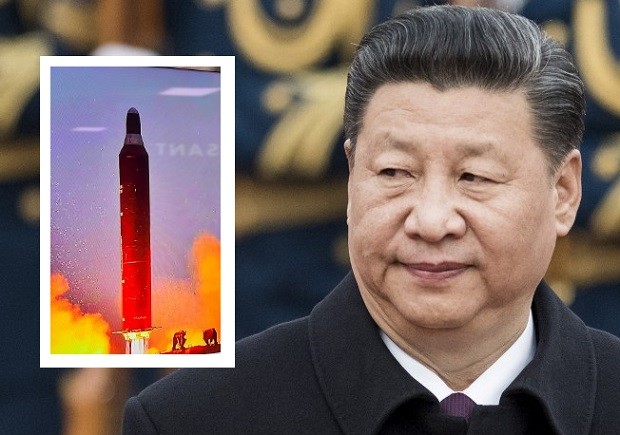
North Korea fired a missile from a region near its border with China as Chinese President Xi Jinping hosted a summit for his Silk Road initiative, attended by several foreign leaders and delegates. AFP
BEIJING—Chinese officials have told the US that they’ve tightened inspections and policing along the border with North Korea as part of United Nations sanctions aimed at halting Pyongyang’s nuclear and missile activities, the top US diplomat for East Asia said Friday.
READ: North Korea fires another missile
That comes as part of a growing awareness on China’s part about the urgent need to pressure North Korea into halting its testing of missiles and nuclear bombs, Acting Assistant Secretary of State Susan Thornton told reporters in Beijing. President Donald Trump’s administration has made a renewed push to enlist Beijing’s help in those efforts following a meeting between Trump and Chinese President Xi Jinping last month.
Touching on other areas of the relationship, Thornton said the new administration has not changed its commitment to greater engagement with countries in the Asia-Pacific region or its approach to Naval operations in the disputed waters of the South China Sea.
On North Korea, the US has seen a “shift in emphasis” in China’s approach to its fellow communist neighbor, Thornton said.
“They’ve said that they have stepped up border inspections, beefed up sort of the policing function on the border, stepped up customs inspections,” she said. Beijing has also done “a number of other things on companies” that have dealings with North Korea, Thornton said, without giving details.
The US has been talking to Beijing about taking action against specific firms and is waiting to see what sort of action China will take, she said.
China has signed on to UN sanctions and suspended coal imports from North Korea through the rest of the year, but has been generally reticent about what other steps it may be taking to use its leverage as Pyongyang’s most important trading and diplomatic partner.
Thornton said the US, China and others were also in talks on a future UN resolution on North Korea in order to cut the time needed to take action following another nuclear or missile test.
“So we’re looking at trying to get going on the next set of major measures that would be taken in the wake of another provocation,” Thornton said. Such measures could include ratcheting up economic pressure on the North by targeting trade in consumer goods, possibly including textiles, she said.
While China has repeatedly called for direct dialogue between Washington and Pyongyang, Thornton said Beijing officials now realize more pressure is needed before that can happen.
“And so they know now that they don’t have, I think, as much time to try to bring the North Koreans to the table, get their calculus changed and get them to the negotiating table as they may have previously thought,” she said.
Adding to that, Beijing also seems to have recognized that North Korea’s actions were “undermining China’s own security in pretty major ways,” Thornton said. JPV/rga